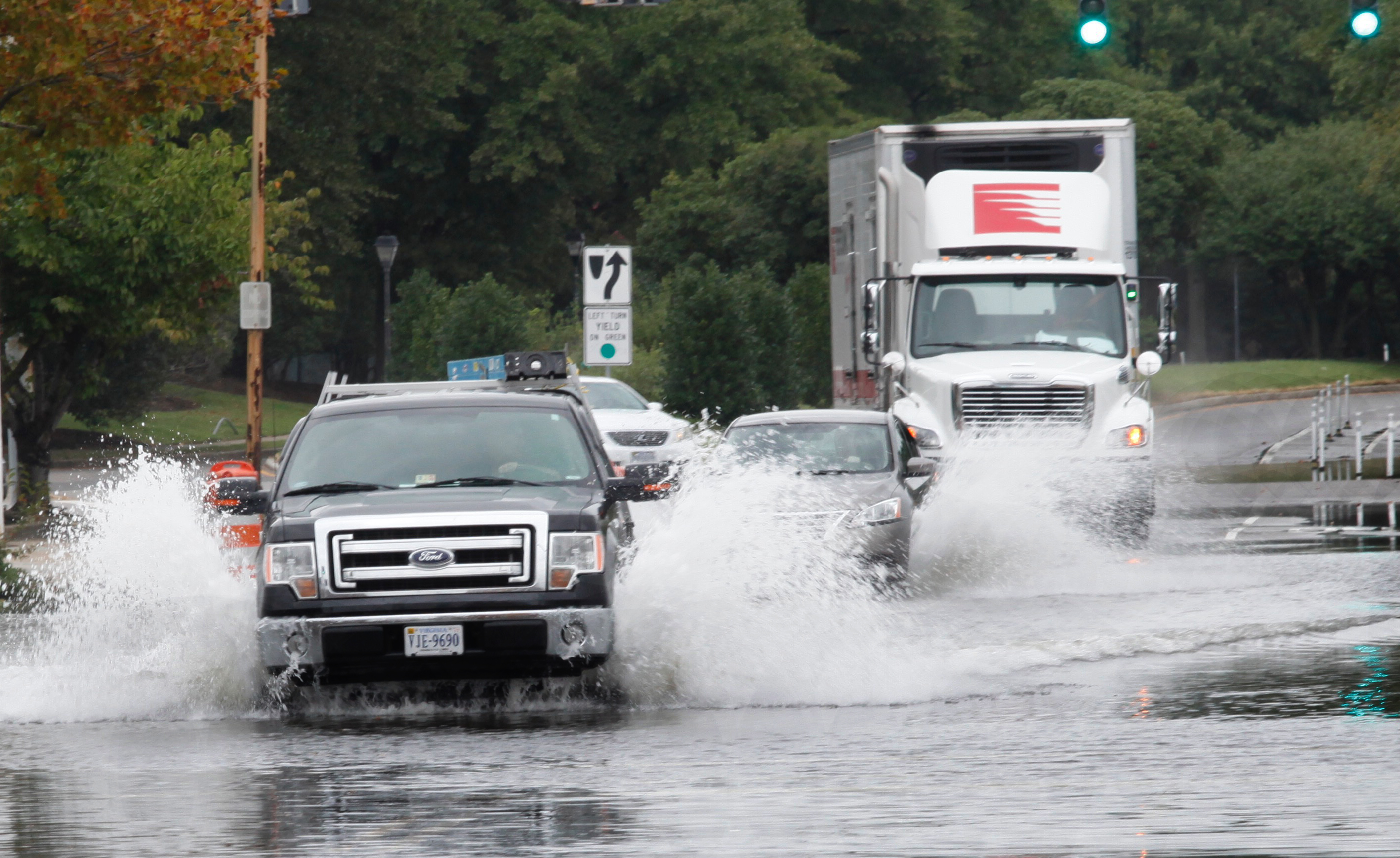Life in Hampton Roads: Sea Level Rise and Flooding
October 19, 2017

This report examines regional measures of environmental risk perceptions from the 2017 Life In Hampton Roads survey (LIHR 2017) conducted by the Old Dominion University Social Science Research Center. Data from prior years is also provided when available to show comparisons in responses over time. Responses were weighted by city population, race, age, gender, and phone usage (cell versus land-line) to be representative of the Hampton Roads region. For additional information on survey methodology, and analyses of other issues, please see the SSRC website at www.odu.edu/ssrc.
The 2017 Life in Hampton Roads survey included a series of questions to determine how people in Hampton Roads felt about sea level rise and flooding, which supports a research focus of the University in this area. The survey asked 908 respondents to give their opinion on a variety of questions ranging from sea level rise to prevalence of recurrent flooding and other flood related topics.
Respondents were asked whether they believe that flooding in Hampton Roads has increased, decreased, or stayed the same in the past 30 years. The majority of respondents (85.8 percent) stated that flooding has either increased (60.4 percent) or stayed the same (25.4 percent) in Hampton Roads over the past 30 years. Only 4.9 percent stated that flooding has decreased and 9.3 percent said that they did not know.
Responses to this question have remained relatively consistent with the previous four years; however, 2017 saw an increase in respondents stating that flooding has increased. In 2017, 60.4 percent of respondents reported that they believe flooding had increased in Hampton Roads over the past 30 years, an 11.5 percent increase since 2016. This year, 25.4 percent of respondents reported that they believe flooding has stayed the same in Hampton Roads over the past 30 years, a 4.6 percent decrease since 2016. Similarly, 4.9 percent of respondents reported that they believe flooding has decreased in Hampton Roads over the past 30 years, a 2.7 percent decrease since 2016.
Over 70 percent (70.9 percent) of respondents indicated they were either very concerned (35.3 percent) or somewhat concerned (35.6 percent) with flooding in Hampton Roads. This is not surprising considering over 60 percent believe that flooding has increased in Hampton Roads in the past 30 years.
Respondents were also asked if they think increased flooding due to sea level rise is likely to negatively impact them in the future. The majority of respondents (61.8 percent) strongly agree (16.1percent) or agree (45.7 percent) that increased flooding due to sea level rise is likely to negatively impact them in the future. More than thirty percent (34.4percent) reported that they strongly disagree (6 percent) or disagree (28.4 percent) that increased flooding due to sea level rise is likely to negatively impact them in the future. Another 4 percent either declined to answer or reported they did not know if increased flooding due to sea level rise is likely to negatively impact them in the future.
Respondents were also asked whether or not recurrent flooding is a problem in their neighborhood. While 60.4 percent of respondents indicated that they think flooding has increased over the past 30 years, 68.6 percent reported that recurrent flooding is not a problem in their neighborhood. The percentage of Hampton Roads respondents reporting that recurring flooding is a problem in their neighborhood increased 7.5 percent (31 percent) from 2016 (23.5 percent).
Respondents who reported they own or rent their home were asked to answer the questions, "Have you had difficulty obtaining insurance coverage for your home?" and "Do you have flood insurance?" An overwhelming majority of respondents reported having no difficulty in obtaining insurance coverage for their home (88.8 percent). Only 8.2 percent of respondents reported having difficulty in obtaining insurance coverage for their home and 3 percent of respondents reported not knowing if they had difficulty in obtaining insurance coverage for their home. It may not be surprising that with only 31 percent reporting that recurrent flooding is a problem in their neighborhood, only 33.1 percent of homeowners and renters reported having flood insurance. The majority of respondents (59.9 percent) claimed not to have flood insurance and another 7 percent did not know if they had flood insurance.
In 2015, only respondents who indicated they owned their home were asked if they had flood insurance, while in 2016 and 2017, respondents who indicated they owned or rented their home were asked if they had flood insurance. Even with the inclusion of respondents who indicated they rented their home, the percentage of respondents who reported having flood insurance in 2016 and 2017 is similar to 2015 (33.1percent in 2017 and 35.1 percent in 2016, compared to 37.4 percent in 2015). The percentage of respondents who reported not having flood insurance has increased in all three years this question has been asked (54.3 percent in 2015, 55.2 percent in 2016, and 59.9percent in 2017).
Of those who reported having flood insurance, 59.3 percent described their coverage as being covered by their renters/homeowner's insurance policy and 31.7 percent described their coverage as being covered by a separate policy purchased from the National Flood Insurance Program. Another 9.1 percent either did not know what type of flood insurance they had or declined to answer.
In summary, about 60 percent of residents feel that flooding has increased in the past 30 years. However, over 65 percent of respondents stated that recurrent flooding is not a problem in their neighborhood, which is the lowest percentage since 2013. Regardless of neighborhood flooding, when it came to concerns about flooding in Hampton Roads in general, most people are somewhat to very concerned that sea level rise will effect them in the future. Despite the concern, the majority of respondents (59.9 percent, the highest percentage since 2014), do not have flood insurance.
Previous 2017 Life in Hampton Roads Survey results:

